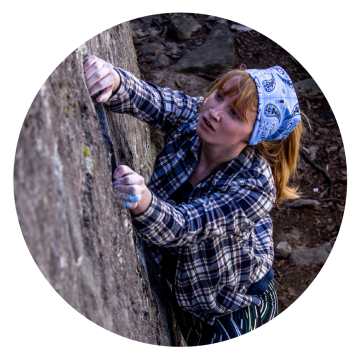Information about the course are excerpts from Professor Langland’s interview conducted by Bruno Renero-Hannan, in which they discussed the latest iteration of the course, as well as women in revolution, gender in the classroom, the value of history in the Trump era, and her future research on breastfeeding rights in Brazil.
About the Course
The class is a way of exploring the history of Latin America in the 20th century through the lens of revolutionary movements. It begins with the Mexican Revolution (1910) and goes up to the present. We look at social movements taking place today, and we consider what makes them revolutionary.
We also look at how historians and others have approached the study of revolutionary movements: How have revolutions been defined and redefined over time? And how have they been represented? So we look at films, art, and other media that have created an iconography of tropes—and sometimes caricatures—of revolution, that get re-written and used in various ways.
Course Highlights
To give you an example of how we treat all of this together, one of the themes that threads through the class is the question of gender. We look questions, such as, what were some of the aspirations of revolutionary societies? Was changing gender relationships on their radar? Was that part of the new utopian societies that revolutionaries were trying to create? We also look at women protagonists: what roles they played, and how those roles got understood and recognized, or not.
And we look at the way that revolution is often mythologized and celebrated in very gendered terms: from the hyper-masculinity of Ché Guevara, to the front-and-center participation of women in the Sandinista revolutionary movement, which becomes part of the way Nicaragua is understood.
I think anyone interested in social justice is also interested in the various efforts that people on this planet have taken to create some kind of social justice: how they’ve defined it, what they think is just and for whom, and the steps they’ve taken to try to reach that. There is a lot that we can learn by exploring those actors who have been committed to this and who have undertaken a variety of different means for doing this. The theme is revolutionary movements, but these movements are very different: They evolve; they learn from each other; they try things that worked in one place and try not to replicate things that didn’t work elsewhere. There is not one kind of model that gets enacted again, and again, and again in different sites. These are diverse and dialogical; they move off of one another.
Who should take the course?
The majority of our students are interested in the world outside the US—but not in any specific question about Latin American revolutions. They can come from any major, but they want to learn about something they don’t already know. It might be something they’ve heard about, but it isn’t so far afield, and it seems approachable. We also get some history majors, even if they are not “Latin American-ists,” per se. Those would be the major constituencies.
Sometimes I hear that students are worried signing up, because they think they need to have a particular background. However, the course doesn’t assume any knowledge! I don’t assume that you know anything about revolutions, I don’t assume you know anything about Latin America, I don’t even assume you know anything about history. But I would say is that it’s a history course—so it appeals to people who like to read.
About the Professor
Victoria Langland holds a joint position in History and Romance Languages and Literatures. She specializes in twentieth-century Latin American history, especially the Southern Cone, and writes about dictatorships, gender, the uses of memory, student and other social movements, and, more generally, the intersections of culture and power. She is the author of Speaking of Flowers: Student Movements and the Making and Remembering of 1968 in Military Brazil (Duke University Press, 2013) and the co-editor of Monumentos, Memoriales y Marcas Territoriales (Siglo XXI, 2003). She is also co-editing an updated version of The Brazil Reader: History, Culture, Politics (under contract, Duke University Press). Before coming to the University of Michigan, she was on the faculty at the University of California, Davis and at Lafayette College. As of July 1, 2017, Dr. Langland will assume the directorship of LACS.
Student Testimonial
 Maggie Johnson (BA ’18) is from Naperville Illinois. She is majoring in history, international studies, and Spanish. Maggie has a deep interest in Latin American history and her honors thesis discusses US drug policy in Mexico in the 1970s.
Maggie Johnson (BA ’18) is from Naperville Illinois. She is majoring in history, international studies, and Spanish. Maggie has a deep interest in Latin American history and her honors thesis discusses US drug policy in Mexico in the 1970s.
“I like this class because it follows a theme throughout Latin American history. Having a class revolve around a central theme means that all the primary sources we read relate to one another even though they may have been created years apart. As contexts change, the shape of revolution changes but similar issues arise in every case.
Our readings about the Mexican Revolution and Emiliano Zapata from the early 20th century and the issues they presented, like indigenous rights and land reform are present again in the late 1990s and early 2000s in the Declarations of the EZLN. These patterns remind me that studying history is important to understanding the present.”

